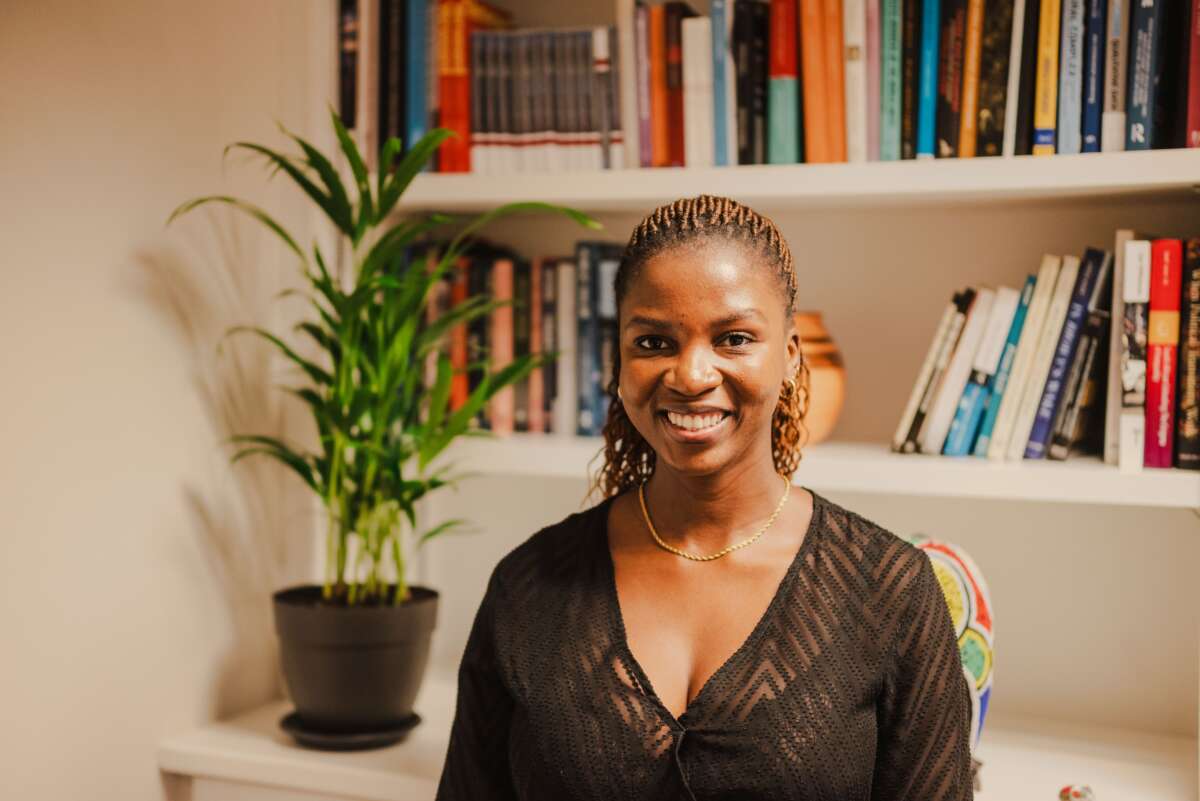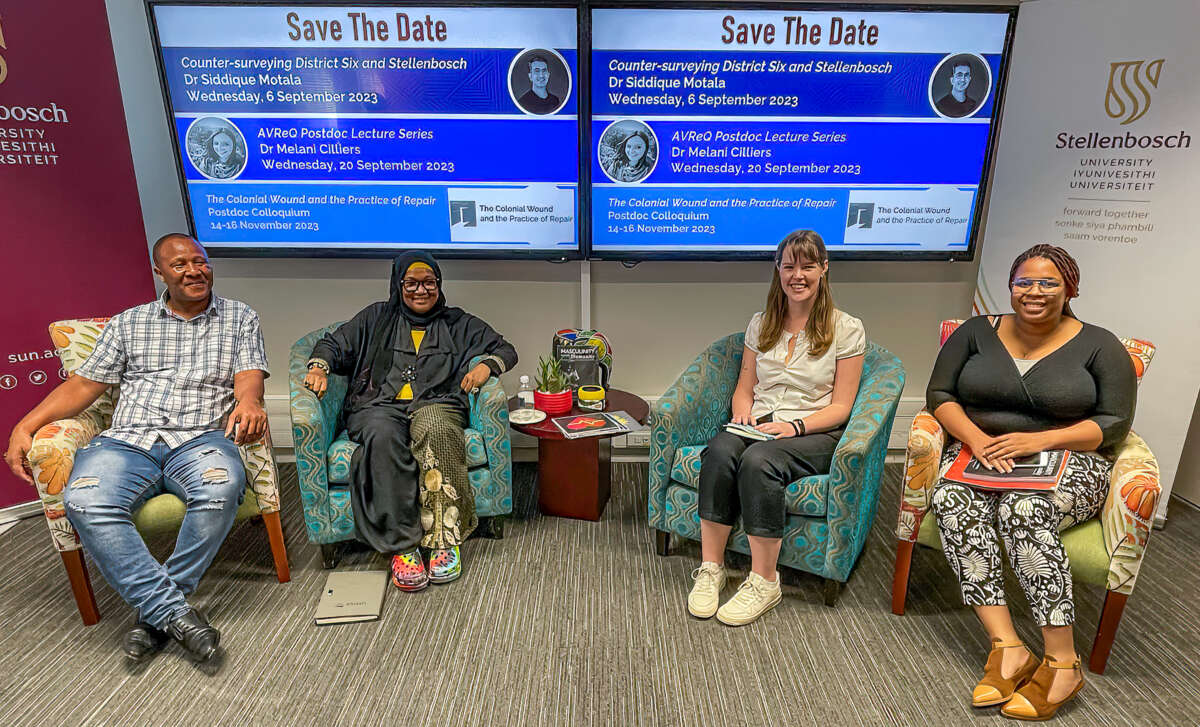Siphosethu Baleni
On August 30, 2023, Thandile Ngxikwe, an activist focused on issues surrounding gender and other intersectional experiences of oppression faced by students at Stellenbosch University, collaborated with AVReQ and First Rand Empowerment Foundation to host a Women’s Month event as part of their ‘Gender Dialogues’ series, at Stellenbosch University. The event explored the issue of gender-based violence (GBV) in our society under the theme of “Masculinity Meets Humanity”. With a focus on the role of masculinity, the purpose of the dialogue was to continue partaking in the long struggle of understanding what perpetuates GBV, who sustains it, and how we can work towards its eradication.
The event was structured in the form of a panel discussion, with a keynote address presented by the guest speaker Dr. Shahieda Jansen, clinical psychologist and deputy director of Academic and ICT Support Services at the University of South Africa. The three panelists were Mr Xolile Pro Zulani, and two master’s students affiliated with AVReQ, Charisma Nozuko Mdunyelwa and Kate Woode-Smith. Both students are passionate about women’s empowerment and gender related issues. Charisma is currently enrolled in Social Anthropology, where her research centers on the formation of black women’s identities and the influence of violence on their daily experiences in South African communities. She holds a specific interest in exploring the concept of “black pain”. Kate is a Psychology student with a profound interest in gender-relations and the evolving landscape of technology’s impact on identity and meaning in the context of GBV in South Africa.
Drawing from her recently published book, Masculinity Meets Humanity: An Adapted Model of Masculinized Psychotherapy, Jansen divided her talk into three parts. First, she sought to situate GBV in what she refers to as foundational violence. Her holistic approach to healing of men and boys addresses GBV by situating it within the context of ‘foundational violence’, which she defines as slow, life squeezing form of violence. Jansen argued that this violence has transgenerational impacts and erodes the fabric of society. Moreover, she emphasizes that understanding GBV requires this broader context, echoing Chimamanda Ngozi Adichie’s idea of telling the whole story.
Second, Jansen contextualized gender in African culture, highlighting its connection to humanity. She contended that gender is culturally constructed, and in an African society such as ours, it is tied to being ethical and relational, rooted in the African concept of Ubuntu. Jansen challenged the assumption of gender as a universal concept, emphasizing its unique African context where manhood is closely linked to womanhood.
In the final part of her talk, Jansen emphasized her relational approach to healing with men and boys. As a clinical psychologist, she outlined her role as that of creating a safe space for patients to access their “inner healer”. Furthermore, she mentioned that women are not included in these group therapy sessions. Jansen explained that the exclusion of women is based on the observation that when women are present, men tend to conform to certain socially acceptable behaviours and scripts, and this hinders the healing process. For Jansen, healing is not a charitable act. Instead, as the process of healing operates at an unconscious level, it is a commitment that requires a supportive circle.
In her model, Jansen asserts that healing occurs when men and boys embrace the deeper understanding of humanity as it relates to who they really are. This conceptualization aligns with the Xhosa concept of “umoya” (which translates to “wind” or “spirit”). This approach, rooted in African spirituality, moves away from a pathological view of patients, and allows them to recognize their own humanity beyond their “isithunzi” or shadow self. This in turn fosters forgiveness, reparations, and ethical relations.
For Jansen the healing of men and boys is crucial in the fight against GBV. In closing, she stated, “The most powerful healing is the truth of who we really are.”
This talk raised a consciousness of the African way of life, tracing it back to precolonial times. It highlighted that violence, including GBV, should not be viewed in isolation. Instead, it should be seen as a continuation of colonial violence that disrupted various aspects of African life.
The panel and audience, including scholars from various disciplines, shared their insights and personal experiences on the subject. The overarching question centred on the integration of empathy and accountability. Charisma Mdunyelwa asked, “How do we start talking with men in a way that encourages them to gain the same insights as you do in your work [Dr Jansen], and in a way that holds space for the anger and rage?” The discussion was thought-provoking, highlighting the need for further research and more dialogues in various areas, such as promoting gender equality, addressing violence, and advancing understanding and empathy in our society.

